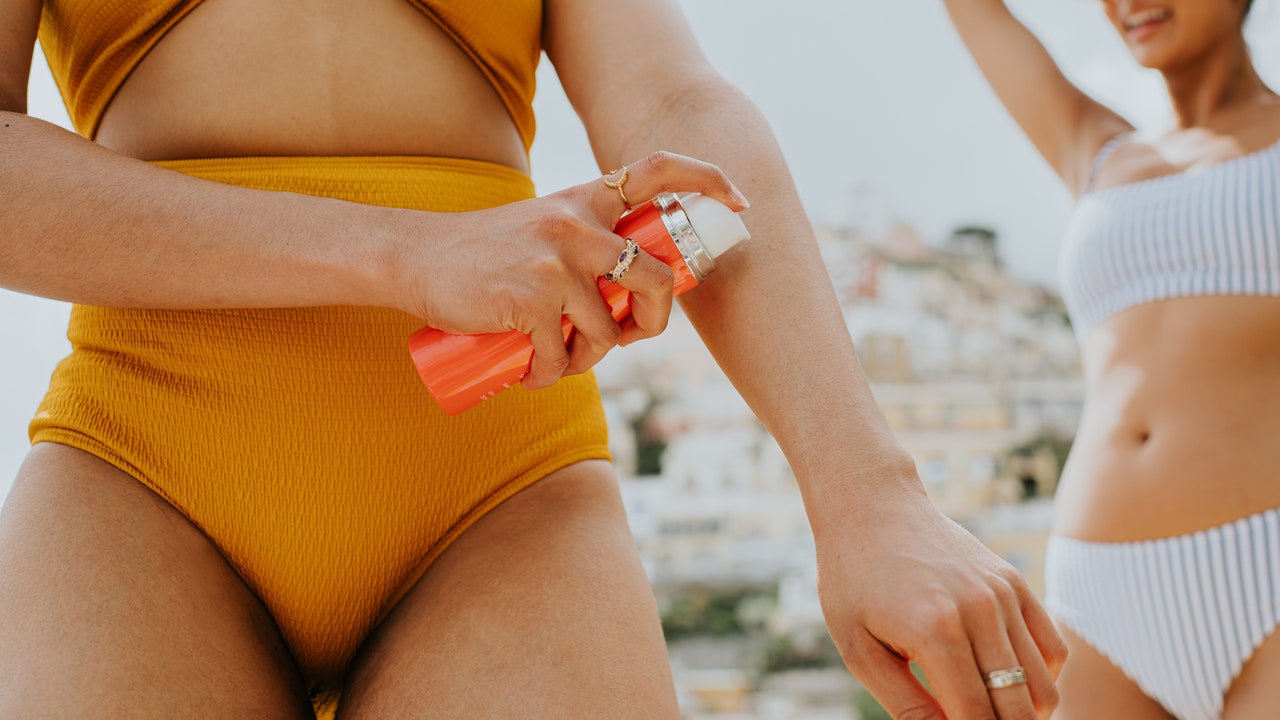The only way to ensure that nary a UV ray touches your skin when you venture outside would be to wear layers of both sunscreen and UPF clothing from head to toe, reapplying several teaspoons worth of sunscreen every two hours. Dr. Gohara estimates that, on average, about 80% of her patients are wearing sunscreen every day; maybe half of those are reapplying every two hours. Maybe 20 percent of them wear sun protective clothing, she estimates. And these are people engaged enough in their skin health that they’re seeing a dermatologist (something that the vast majority of Americans do not do regularly, or in many cases ever, do).
Regardless of how much of it you’re applying, your sunscreen should definitely not be homemade or something you can eat, despite what some clean beauty influencers might lead you to believe. Making your own sunscreen is a great way to ensure you get a pretty nasty sunburn (just one of which doubles your risk of melanoma). As my colleague Kara Nesvig wrote: “[Nara and Lucky Blue Smith’s] DIY sunscreen wouldn’t provide any defense against burns, skin cancer, premature aging, or any of the other risks that come with unprotected sun exposure.” (To their credit, neither Smith seems to be actively against buying sunscreen at the store, they just apparently ran out of their usual stuff and decided to make their own. Again, don’t do this!)
The “natural beauty” influencers do have one thing right: Sunscreen does contain “chemicals”… that’s what makes it work. But current science doesn’t point to this being a cause for concern. A lot of this fear-mongering comes from in vitro or animal trials where sunscreen ingredients are injected directly into cells at extremely high levels, cosmetic chemist Alex Padgett told me. Plus, as cosmetic chemist Esther Olu pointed out in her video responding to an influencer’s claim that you should “throw out” any sunscreen you wouldn’t eat: Just because something is natural doesn’t mean it’s safe. And on the note of sunscreens being concerning because they contain preservatives, Olu says, “I would hope you want preservatives in your products, not only to keep you safe, but also to extend the shelf life of your products so you can use and enjoy them.” Hear, hear! Just this month, mineral sun-care brand Suntegrity Skincare announced a voluntary recall of its tinted sunscreen because of “higher than acceptable levels” of a type of mold called Aspergillus Sydowii.

